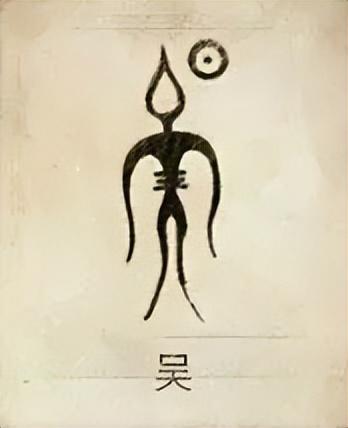Meta Description: Explore the rich history of the Wu surname, one of China’s oldest family names, tracing its origins, legendary figures, and enduring cultural impact over millennia.

Origins: A Tapestry of Ancient Roots
The Wu surname (wú) is one of China’s most ancient family names, with origins spanning over 5,000 years. Its history reflects the diversity and inclusivity of Chinese civilization through four key lineages:
A tribe under the Yan Emperor (a legendary ruler predating the Yellow Emperor) adopted the zouyu (a mythical "benevolent beast") as their totem. Over time, the characters for “Yu” (yú) and “Wu” (wú) became interchangeable, leading some descendants to adopt “Wu” as their surname. Notably, Wu He, a skilled archer from this clan, famously competed with the legendary Hou Yi during the Xia Dynasty.
The Ji Clan and the Kingdom of Wu
The most widely recognized origin traces back to Taibo and Zhongyong, sons of the Zhou tribal leader Gugong Danfu. To avoid succession conflicts, they migrated south to present-day Jiangsu, established the state of Gou Wu, and assimilated with local tribes. After the kingdom fell in 473 BCE, its royal descendants adopted “Wu” as their surname.
The Fire God’s Legacy
Wu Hui, a descendant of the mythological emperor Zhuanxu, served as the “Fire Official”. His clan later settled in Shandong during the Shang Dynasty, adopting “Wu” as their surname
Cultural Blending
Survivors of the fallen Yu state (descendants of Emperor Shun) adopted “Wu” due to phonetic similarities. Additionally, ethnic groups like the Manchu, Mongol, and Zhuang integrated the name during cultural exchanges with Han Chinese.
Notable Figures: Legends Across Eras
The Wu lineage boasts luminaries who shaped China’s political, cultural, and scientific landscapes:
Military & Politics:
Wu Qi : A strategist co-authoring The Methods of the Sima (with Sun Tzu), revered in military history.
Arts & Literature:
Wu Daozi: The “Sage of Painting,” celebrated for his flowing, dynamic brushwork7.
Wu Cheng’en: Author of Journey to the West, a cornerstone of Chinese literature7.
Science & Modern Achievements:
Chien-Shiung Wu: The “First Lady of Physics,” pivotal in disproving the parity law in particle physics7.
Andrew Ng: AI pioneer and co-founder of Coursera, advancing global tech education7.
Migration and Clan Traditions
The Wu surname’s spread mirrors China’s historical shifts:
Early Expansion
After the Wu Kingdom’s fall, descendants migrated north to Shandong and Henan, and south to Jiangxi and Anhui, forming influential branches like the Yanling and Bohai Wu clans.
Southern Flourishing
During the Tang and Song dynasties, Wu families thrived in Jiangsu, Fujian, and Guangdong. Landmarks like the Wu Ancestral Hall in Quanzhou (built during the Ming-Qing era) stand as testaments to their legacy.
Global Diaspora
From the Ming Dynasty’s “Maritime Silk Road” to 19th-century migrations, Wu descendants settled in Southeast Asia, Japan, and later the Americas. Today, communities in Vietnam and Malaysia preserve ancestral rituals.
Genealogy and Values
Wu clans meticulously documented genealogies (jiapu) and upheld Confucian-inspired family codes, such as Wu Linzhi’s Ming-era Family Precepts, emphasizing education and harmony.
Cultural Legacy: Bridging Past and Present
The Wu Dialect & Arts
The Wu region (Jiangsu/Zhejiang) nurtured unique traditions like Kunqu opera and the “Wu school” of painting, symbolizing China’s artistic refinement.
Philosophy of Harmony
Taibo’s legendary act of yielding power (“three concessions”) became a Confucian ideal of humility, echoing in modern leaders like Zhou Enlai (though not a Wu descendant).
Modern Contributions
From architect Wu Liangyong (designer of Beijing’s) to Olympic diver Wu Minxia, the Wu name continues to inspire innovation.
Conclusion
The Wu surname is more than a family marker—it’s a living chronicle of China’s cultural resilience. From ancient archers to AI pioneers, its story celebrates adaptability, intellectual pursuit, and the enduring bonds of heritage. For those exploring Chinese genealogy, the Wu lineage offers a captivating window into the soul of East Asian history.